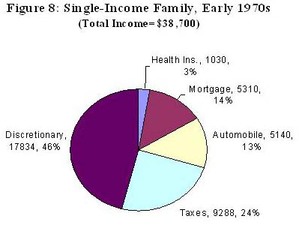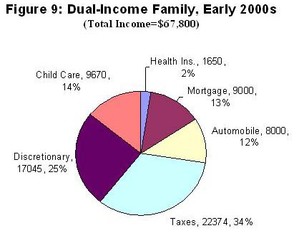Comparing Phoenix to Seattle and Austin
Chad Graham of the Arizona Republic writes an article this week that begins with this headline:
Phoenix can learn economically from robust Seattle and Austin
Already, my BS antenna are deployed. Why? I don't know anything about Mr. Graham, but nearly every 20- or 30-something journalist would like all the world to be hip and freaky and trendy and cool like Seattle or Austin (or Boulder or San Francisco). So they have a natural predisposition to writing a story and interpreting facts to say that Phoenix (or whatever uncool city they hail from) should do everything it can to emulate Seattle or Portland or whatever is the hip city of the moment.
I have lived in Phoenix and Seattle and Boulder, and have done business in Portland and Austin. And if you want to find a really great music club, Austin would be your place. And if you are a really rich guy who wants a unique lake front home and a dock for his floatplane, Seattle would be the pick. But if you were a middle class family trying to get the most home for your money, you would take Phoenix all the way. And if you wanted to start a real business that makes stuff, you would be insane to do it in any of these cities except Phoenix (and perhaps Austin). Portland and Seattle and Boulder and (more recently) Austin are what one might call rich snob - poor snob towns. They appeal to the millionaire with the fractional ownership jet and the pierced and tattooed slacker club goer. Which is fine, but does every city really need to be like them?
Unlike the Valley, some parts of the U.S. such as Seattle and Austin
have been only slightly affected by the national economic slowdown.Neither area has experienced the Valley's level of falling home prices, increased foreclosure rates nor its slowed job growth.
Those regions are places that Phoenix could learn from as it charts
a future based less on housing and growth and more on competing in the
global economy.
OK, lets start with the home thing, since the article focuses A LOT on housing. I am willing to concede that in some recent period Austin and Seattle had less of a home price drop than Phoenix. Ignoring for a moment the absurdity of extrapolating 30 year trends from 6-12 months of data, we should look structurally at these housing markets. It turns out that Seattle, for example, has MUCH higher median home prices than Phoenix, in large part due to structural regulatory factors that I would presume the author would like Phoenix to emulate.
As a result, the median home price in Seattle is about $450,000 while the median in Phoenix is closer to $275,000. In fact, the Seattle median is very close to the Phoenix 75th percentile. [note figures do not match those in article - I could not find any two median home price numbers that were the same for a market] One comment on Seattle housing was this:
The pattern is very strong: In Seattle you have affluent, largely
single people chasing a small supply of urban housing. The result is
small household size, an exodus of families to the suburbs, and very
high housing prices in the city.
Is this really what Phoenix should emulate, just because our home prices dropped more over a 6 month period?
One year ago, the Valley's job growth ranked No. 7 among
metropolitan markets with more than 1 million workers, according to the
latest Blue Chip Job Growth Update released by the W.P. Carey School of
Business at Arizona State University.It now ranks No. 20, while Seattle is No. 2.
In job markets with less than 1 million workers, Austin ranks No. 14.
So, until recently, Phoenix led both cities in job growth. In the last year, we have fallen behind. Can anyone on the planet tell me why the last year of data is more relevant than the previous five, or ten, when Phoenix dusted these markets? One year of downturn and suddenly Phoenix's economy needs to be restructured by some massive government 5-year plan?
But here is the really funny part. Let's take Seattle, the economic juggernaut with which the author is so enamored. In 1960, Seattle had a population of about 550,000 people. In 2000, Seattle had a population of about.... 550,000. In the same time period Phoenix grew from 726,000 to 3.2 million. Wow, that Seattle is a growth juggernaut. But it is hard to get apples and oranges on MSA's and such, so here is data from a single source: From 1990-2000, the Austin MSA added 400,000 people, Seattle MSA added 382,000 people and Phoenix added 1.01 million, more than the other two combined. Presumably, most of these folks found work, so where are all the jobs being added?
In Phoenix, "housing-related employment is falling fast, and the
impact on the economy is extreme since the industry comprises over 15
percent of total employment . . . compared to 10 percent nationwide,"
an April Moody's Economy.com report said.
This is hilarious. We happen to be in a housing market downturn, so Phoenix is doomed because it is overweighted towards home construction. But did anyone visit Seattle or Austin in 2001/2002 after the tech bubble crash? It was a bloodbath, far worse than what Phoenix is experiencing today. This kind of analysis is so short-sighted as to be absurd.
Maricopa County's average weekly wages increased 3.8 percent to $822
in the third quarter of 2007, according to the latest numbers available
from the U.S. Department of Labor.Weekly wages in King County, home to Seattle, rose 8 percent to
$1,129. Wages in Travis County, home to Austin, rose to $911, a 2.7
percent jump.Meanwhile, Arizona's average per person income ($33,029) grew by the
smallest percentage among states in 2007, according to the U.S. Bureau
of Economic Analysis.
One word for you: immigration. Arizona has gotten hundreds of thousands of new immigrants with relatively low skills, so they come in at the bottom of the income scale and drive median wages down. Seattle and Austin immigration, to the extent they have it, are high-skilled and highly paid. Does every city have to be a high-income yuppie white-Asian enclave like Seattle? I like Arizona and its Hispanic influences, even if this immigration means the governor can't puff her chest out at the governors' conference over average wages.
The two cities have a greater percentage of employment in tech jobs,
with 9.2 percent in Austin and 8.8 in Seattle compared with 4.6 percent
in Phoenix.
Sorry, but I have never thought it a goal of government to subsidize and maximize "tech jobs." The other 95.4% of us in Phoenix without a job statistically categorized by the government as a tech job are happy not to be subsidizing the other 4.6%. This is the kind of effort that does nothing to help the average person, who will never have a tech job, but makes government officials feel really good about themselves. Another way of putting it: The author is suggesting the government single-mindedly focus on subsidizing a class of jobs that 90+% of the people in all three cities do not hold.
Postscript: For those of you who want to laugh yourself silly, you really need to read the "vision" in the sidebar of this article. It is the most incredible collection of politically correct notions without any relationship to real value creation that I have ever seen. I can't really do it justice, but here are some highlights:
2010
The latest housing bust finally convinces the Arizona Legislature to
fund an aggressive international-economic-development program that
invests in science, engineering, technology and higher education.Incentives draw nutraceutical firms, which use food substances to make
products that provide health benefits, such as lycopene.
Green-technology firms partner with universities to launch companies
that turn a profit...2035
High-paying technology jobs are clustered in three major areas from
Prescott to Phoenix to Tucson. The economy boasts an $800 billion
nutraceutical industry and the world's largest solar facility with
10,000 acres of sun power.
I bet they include no offset in their study for lost growth due to higher taxes to fund this. And our city of 5-10 million people is going to build its economy on nutraceuticals? We're going to have a vitamin water business that, at $800 billion, is 6% the current size of the entire US economy? I sure hope some of the business school students who wrote this either wise up or go into academics, because if they try to walk in to a real corporate board room with this stuff they are going to get skewered.





